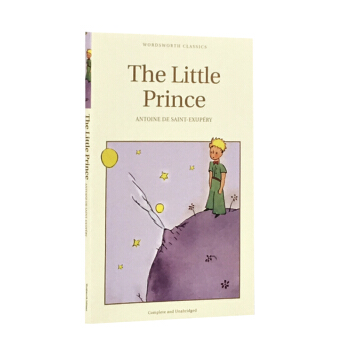![Mansfield Park 曼斯菲尔德庄园 [平装]](https://pic.windowsfront.com/19017048/af7e7161-2071-49f2-b5d9-76fb3e5e1331.jpg)

具体描述
编辑推荐
Founded in 1906 by J.M. Dent, the Everyman Library has always tried to make the best books ever written available to the greatest number of people at the lowest possible price. Unique editorial features that help Everyman Paperback Classics stand out from the crowd include: a leading scholar or literary critic's introduction to the text, a biography of the author, a chronology of her or his life and times, a historical selection of criticism, and a concise plot summary. All books published since 1993 have also been completely restyled: all type has been reset, to offer a clarity and ease of reading unique among editions of the classics; a vibrant, full-color cover design now complements these great texts with beautiful contemporary works of art. But the best feature must be Everyman's uniquely low price. Each Everyman title offers these extensive materials at a price that competes with the most inexpensive editions on the market-but Everyman Paperbacks have durable binding, quality paper, and the highest editorial and scholarly standards.内容简介
In Mansfield Park, first published in 1814, when the author had reached her full maturity as a novelist, Jane Austen paints some of her most witty and perceptive studies of character. Against a genteel country landscape of formal parks and stately homes, the gossipy Mrs. Norris becomes a masterful comic creation; the fickle young suitor Henry Crawford provides an unequaled portrait of an unscrupulous young man; and the complexly drawn Fanny Price emerges as one of Jane Austen's finest achievements—the poor cousin who comes to stay with her wealthy relatives at Mansfield Park and learns how the game of love can too easily turn to folly. More intricately plotted and wider in scope than Austen's earlier works, Mansfield Park continues to enchant and delight us as a superb example of a great author's craft.作者简介
Jane Austen was born on December 16, 1775 at Steventon near Basingstoke, the seventh child of the rector of the parish. She lived with her family at Steventon until they moved to Bath when her father retired in 1801. After his death in 1805, she moved around with her mother; in 1809, they settled in Chawton, near Alton, Hampshire. Here she remained, except for a few visits to London, until in May 1817 she moved to Winchester to be near her doctor. There she died on July 18, 1817.As a girl Jane Austen wrote stories, including burlesques of popular romances. Her works were only published after much revision, four novels being published in her lifetime. These are Sense and Sensibility (1811), Pride and Prejudice (1813), Mansfield Park (1814) and Emma (1816). Two other novels, Northanger Abbey and Persuasion, were published posthumously in 1818 with a biographical notice by her brother, Henry Austen, the first formal announcement of her authorship. Persuasion was written in a race against failing health in 1815-16. She also left two earlier compositions, a short epistolary novel, Lady Susan, and an unfinished novel, The Watsons. At the time of her death, she was working on a new novel, Sanditon, a fragmentary draft of which survives.
简·奥斯汀,是英国著名女性小说家,她的作品主要关注乡绅家庭女性的婚姻和生活,以女性特有的细致入微的观察力和活泼风趣的文字真实地描绘了她周围世界的小天地。
精彩书评
"Never did any novelist make more use of an impeccable sense of human values."——Virginia Woolf
精彩书摘
Chapter OneAbout thirty years ago, Miss Maria Ward of Huntingdon, with only seven thousand pounds, had the good luck to captivate Sir Thomas Bertram, of Mansfield Park, in the county of Northampton, and to be thereby raised to the rank of a baronet's lady, with all the comforts and consequences of an handsome house and large income. All Huntingdon exclaimed on the greatness of the match, and her uncle, the lawyer, himself, allowed her to be at least three thousand pounds short of any equitable claim to it. She had two sisters to be benefited by her elevation; and such of their acquaintance as thought Miss Ward and Miss Frances quite as handsome as Miss Maria, did not scruple to predict their marrying with almost equal advantage. But there certainly are not so many men of large fortune in the world, as there are pretty women to deserve them. Miss Ward, at the end of half a dozen years, found herself obliged to be attached to the Rev. Mr. Norris, a friend of her brother-in-law, with scarcely any private fortune, and Miss Frances fared yet worse. Miss Ward's match, indeed, when it came to the point, was not contemptible, Sir Thomas being happily able to give his friend an income in the living of Mansfield, and Mr. and Mrs. Norris began their career of conjugal felicity with very little less than a thousand a year. But Miss Frances married, in the common phrase, to disoblige her family, and by fixing on a Lieutenant of Marines, without education, fortune, or connections, did it very thoroughly. She could hardly have made a more untoward choice. Sir Thomas Bertram had interest, which, from principle as well as pride, from a general wish of doing right, and a desire of seeing all that were connected with him in situations of respectability, he would have been glad to exert for the advantage of Lady Bertram's sister; but her husband's profession was such as no interest could reach; and before he had time to devise any other method of assisting them, an absolute breach between the sisters had taken place. It was the natural result of the conduct of each party, and such as a very imprudent marriage almost always produces. To save herself from useless remonstrance, Mrs. Price never wrote to her family on the subject till actually married. Lady Bertram, who was a woman of very tranquil feelings, and a temper remarkably easy and indolent, would have contented herself with merely giving up her sister, and thinking no more of the matter: but Mrs. Norris had a spirit of activity, which could not be satisfied till she had written a long and angry letter to Fanny, to point out the folly of her conduct, and threaten her with all its possible ill consequences. Mrs. Price in her turn was injured and angry; and an answer which comprehended each sister in its bitterness, and bestowed such very disrespectful reflections on the pride of Sir Thomas, as Mrs. Norris could not possibly keep to herself, put an end to all intercourse between them for a considerable period.
Their homes were so distant, and the circles in which they moved so distinct, as almost to preclude the means of ever hearing of each other's existence during the eleven following years, or at least to make it very wonderful to Sir Thomas, that Mrs. Norris should ever have it in her power to tell them, as she now and then did in an angry voice, that Fanny had got another child. By the end of eleven years, however, Mrs. Price could no longer afford to cherish pride or resentment, or to lose one connection that might possibly assist her. A large and still increasing family, an husband disabled for active service, but not the less equal to company and good liquor, and a very small income to supply their wants, made her eager to regain the friends she had so carelessly sacrificed; and she addressed Lady Bertram in a letter which spoke so much contrition and despondence, such a superfluity of children, and such a want of almost every thing else, as could not but dispose them all to a reconciliation. She was preparing for her ninth lying-in, and after bewailing the circumstance, and imploring their countenance as sponsors to the expected child, she could not conceal how important she felt they might be to the future maintenance of the eight already in being. Her eldest was a boy of ten years old, a fine spirited fellow who longed to be out in the world; but what could she do? Was there any chance of his being hereafter useful to Sir Thomas in the concerns of his West Indian property? No situation would be beneath him-or what did Sir Thomas think of Woolwich? or how could a boy be sent out to the East?
The letter was not unproductive. It re-established peace and kindness. Sir Thomas sent friendly advice and professions, Lady Bertram dispatched money and baby-linen, and Mrs. Norris wrote the letters.
Such were its immediate effects, and within a twelvemonth a more important advantage to Mrs. Price resulted from it. Mrs. Norris was often observing to the others, that she could not get her poor sister and her family out of her head, and that much as they had all done for her, she seemed to be wanting to do more: and at length she could not but own it to be her wish, that poor Mrs. Price should be relieved from the charge and expense of one child entirely out of her great number. "What if they were among them to undertake the care of her eldest daughter, a girl now nine years old, of an age to require more attention than her poor mother could possibly give? The trouble and expense of it to them, would be nothing compared with the benevolence of the action." Lady Bertram agreed with her instantly. "I think we cannot do better," said she, "let us send for the child."
Sir Thomas could not give so instantaneous and unqualified a consent. He debated and hesitated;-it was a serious charge;-a girl so brought up must be adequately provided for, or there would be cruelty instead of kindness in taking her from her family. He thought of his own four children-of his two sons-of cousins in love, &c.;-but no sooner had he deliberately begun to state his objections, than Mrs. Norris interrupted him with a reply to them all whether stated or not.
"My dear Sir Thomas, I perfectly comprehend you, and do justice to the generosity and delicacy of your notions, which indeed are quite of a piece with your general conduct; and I entirely agree with you in the main as to the propriety of doing every thing one could by way of providing for a child one had in a manner taken into one's own hands; and I am sure I should be the last person in the world to withhold my mite upon such an occasion. Having no children of my own, who should I look to in any little matter I may ever have to bestow, but the children of my sisters?-and I am sure Mr. Norris is too just-but you know I am a woman of few words and professions. Do not let us be frightened from a good deed by a trifle. Give a girl an education, and introduce her properly into the world, and ten to one but she has the means of settling well, without farther expense to any body.
A niece of our's, Sir Thomas, I may say, or, at least of your's, would not grow up in this neighbourhood without many advantages. I don't say she would be so handsome as her cousins. I dare say she would not; but she would be introduced into the society of this country under such very favourable circumstances as, in all human probability, would get her a creditable establishment. You are thinking of your sons-but do not you know that of all things upon earth that is the least likely to happen; brought up, as they would be, always together like brothers and sisters? It is morally impossible. I never knew an instance of it. It is, in fact, the only sure way of providing against the connection. Suppose her a pretty girl, and seen by Tom or Edmund for the first time seven years hence, and I dare say there would be mischief. The very idea of her having been suffered to grow up at a distance from us all in poverty and neglect, would be enough to make either of the dear sweet-tempered boys in love with her. But breed her up with them from this time, and suppose her even to have the beauty of an angel, and she will never be more to either than a sister."
"There is a great deal of truth in what you say," replied Sir Thomas, "and far be it from me to throw any fanciful impediment in the way of a plan which would be so consistent with the relative situations of each. I only meant to observe, that it ought not to be lightly engaged in, and that to make it really serviceable to Mrs. Price, and creditable to ourselves, we must secure to the child, or consider ourselves engaged to secure to her hereafter, as circumstances may arise, the provision of a gentlewoman, if no such establishment should offer as you are so sanguine in expecting."
"I thoroughly understand you," cried Mrs. Norris; "you are every thing that is generous and considerate, and I am sure we shall never disagree on this point. Whatever I can do, as you well know, I am always ready enough to do for the good of those I love; and, though I could never feel for this little girl the hundredth part of the regard I bear your own dear children, nor consider her, in any respect, so much my own, I should hate myself if I were capable of neglecting her. Is not she a sister's child? and could I bear to see her want, while I had a bit of bread to give her? My dear Sir Thomas, with all my faults I have a warm heart: and, poor as I am, would rather deny myself the necessaries of life, than do an ungenerous thing. So, if you are not against it, I will write to my poor sister to-morrow, and make the proposal; and, as soon as matters are settled, I will engage to get the child to Mansfield; you shall have no trouble about it. My own trouble, you know, I never regard.
I will send Nanny to London on purpose, and she may have a bed at her cousin, the sadler's, and the child be appointed to meet her there. They may easily get her from Portsmouth to town by the coach, under the care of any creditable person that may chance to be g...
用户评价
如果让我用一个词来形容这部作品,那便是“克制的美学”。它在表达强烈情感时,总能保持一种恰到好处的距离感,不至于让读者感到过度煽情或矫揉造作。这种克制感渗透在每一个人物的言行举止之中,尤其是在那些涉及荣誉、财产和婚姻的大事件面前。我特别喜欢其中关于女性自我意识觉醒的描写,虽然是以一种非常含蓄的方式进行,但其思想的进步性在那个时代是超前的。阅读过程中,我发现自己不时地会停下来,反复咀嚼某些精妙的对白,那些话语的重量,远超其字面意思。这本书的价值在于,它提供了一个观察和理解过去社会运行逻辑的绝佳窗口,同时,它也提供了一个关于如何在复杂环境中保持自我纯净的深刻范本。绝对是一部值得反复阅读和深入研究的杰作。
评分这本精装本小说简直让人欲罢不能,故事的开篇就将我牢牢吸引住了。它描绘了一个充满田园牧歌气息的庄园,但很快,你就能感受到在那份宁静之下暗流涌动的复杂人性。作者对社会阶层和婚姻制度的刻画入木三分,每一个人物的抉择都让人深思。我尤其欣赏作者对于细节的精准捕捉,无论是人物的服饰、庄园的陈设,还是那个时代特有的礼仪规范,都展现出极高的考究。阅读过程中,我仿佛能闻到壁炉里燃烧的木柴味,感受到夏日午后阳光洒在草地上的温暖。主人公的成长之路充满了挑战和挣扎,她的善良与智慧在那个充满偏见的社会环境中显得尤为珍贵。这本书不仅仅是一个爱情故事,更是一部关于道德、责任和个人价值的深刻探讨。每一次翻页,都像是在揭开一层新的谜团,让人对接下来会发生什么充满期待。尽管篇幅不短,但情节紧凑,没有丝毫拖沓之感,读完后留下的回味无穷,绝对值得反复品读。
评分说实话,刚开始接触这类经典文学时,我还有些担心会因为语言的古旧而感到阅读障碍,但事实证明我的顾虑是多余的。作者的笔触极其流畅自然,尽管背景设定在过去的某个时期,但其中所探讨的人类情感和道德困境却是永恒的。我特别喜欢它那种细腻到近乎残酷的心理描写,每一个角色的内心波动都被描绘得淋漓尽致。比如某位配角的虚伪和自负,那种小心翼翼维护自身利益的嘴脸,简直让人不寒而栗。这本书的叙事节奏把握得非常好,它懂得何时需要加快速度推进主要事件,何时又需要放慢脚步,深入挖掘人物的内心世界。它更像是一面镜子,映照出我们自身在面对诱惑和考验时的真实反应。读完它,我感觉自己对人性的复杂性又有了更深一层的理解。它不像一些快餐小说那样追求刺激,而是用一种沉稳而富有力量的方式,将深刻的道理植入读者的心中。
评分坦白讲,这本书的魅力是需要时间去慢慢体会的,它不是那种能在三小时内读完并立刻下结论的类型。它更像是一坛需要陈年的老酒,初尝可能觉得平淡,但回味起来,那份醇厚和层次感便显现出来了。最令我震撼的是,作者对于“合适”与“真爱”之间界限的探讨。在那个讲求门当户对的时代背景下,主人公所面临的选择是何其艰难?她必须在社会期望和内心渴望之间做出权衡。我多次因为主角的隐忍和坚持而感到心疼,但同时也为她最终的坚守而感到由衷的敬佩。这本书的结构设计得非常巧妙,通过不同的场景转换和人物互动,逐步揭示出隐藏在表象下的真相。我甚至忍不住停下来,对照着历史背景资料去理解当时的社会规范,这极大地丰富了我的阅读体验。
评分我向来对那些描绘乡村生活和大家族内部动态的小说情有独钟,而这本作品无疑是其中的佼佼者。它成功地构建了一个既美丽又充满限制的世界。庄园的设定本身就是一个充满象征意义的容器,它关住了那些渴望自由的灵魂,也滋养了那些恪守传统的人。我特别欣赏作者对自然环境的描写,那种对季节更迭、天气变化的细腻捕捉,不仅烘托了人物的心情,更成为了推动情节发展的重要线索。读着读着,我发现自己完全沉浸在了那个年代的生活氛围中,甚至开始想象如果是我身处其中,会做出怎样的选择。这本书的魅力在于它的“不动声色”,没有惊天动地的事件,但每一个微小的对话、每一个不经意的眼神交汇,都蕴含着巨大的信息量。它教会了我如何去“阅读”沉默和潜台词,这对于提升日常人际交往的洞察力都大有裨益。
评分不错一本书,我超喜欢,下次再买
评分挺厚的一本,活动买的不贵,虽然不是什么鼎鼎有名的名著,希望好看吧!
评分Founded in 1906 by J.M. Dent, the Everyman Library has always tried to make the best books ever written available to the greatest number of people at the lowest possible price. Unique editorial features that help Everyman Paperback Classics stand out from the crowd include: a leading scholar or literary critic's introduction to the text, a biography of the author, a chronology of her or his life and times, a historical selection of criticism, and a concise plot summary. All books published since 1993 have also been completely restyled: all type has been reset, to offer a clarity and ease of reading unique among editions of the classics; a vibrant, full-color cover design now complements these great texts with beautiful contemporary works of art. But the best feature must be Everyman's uniquely low price. Each Everyman title offers these extensive materials at a price that competes with the most inexpensive editions on the market-but Everyman Paperbacks have durable binding, quality paper, and the highest editorial and scholarly standards.
评分挺好的,是我喜欢的书籍,下次还要光顾。
评分Founded in 1906 by J.M. Dent, the Everyman Library has always tried to make the best books ever written available to the greatest number of people at the lowest possible price. Unique editorial features that help Everyman Paperback Classics stand out from the crowd include: a leading scholar or literary critic's introduction to the text, a biography of the author, a chronology of her or his life and times, a historical selection of criticism, and a concise plot summary. All books published since 1993 have also been completely restyled: all type has been reset, to offer a clarity and ease of reading unique among editions of the classics; a vibrant, full-color cover design now complements these great texts with beautiful contemporary works of art. But the best feature must be Everyman's uniquely low price. Each Everyman title offers these extensive materials at a price that competes with the most inexpensive editions on the market-but Everyman Paperbacks have durable binding, quality paper, and the highest editorial and scholarly standards.
评分好
评分好
评分帮朋友买的,朋友很满意。
评分活动期间买的很划算.都是正版书,质量非常好.
相关图书
本站所有内容均为互联网搜索引擎提供的公开搜索信息,本站不存储任何数据与内容,任何内容与数据均与本站无关,如有需要请联系相关搜索引擎包括但不限于百度,google,bing,sogou 等
© 2026 book.coffeedeals.club All Rights Reserved. 静流书站 版权所有

![Barbarians at the Gate: The Fall of RJR Nabisco 门口的野蛮人:史上最强悍的资本收购 英文原版 [平装] pdf epub mobi 电子书 下载](https://pic.windowsfront.com/19021215/550bea1aN8c546868.jpg)
![Andrew Lost in the Deep [平装] [6-9岁] pdf epub mobi 电子书 下载](https://pic.windowsfront.com/19032084/ff436a8f-89a2-4cbb-9799-156be852d99f.jpg)
![Foundation 英文原版 [平装] pdf epub mobi 电子书 下载](https://pic.windowsfront.com/19041764/faa2338a-5c23-42e7-9016-71598d7a5e65.jpg)
![Greek Myths 英文原版 [平装] pdf epub mobi 电子书 下载](https://pic.windowsfront.com/19349185/rBEhVlJbhpUIAAAAAAEHTxzQvTAAAEJmAJ9HsYAAQdn543.jpg)






![The Whipping Boy王子替罪羊 英文原版 [平装] [8-12岁] pdf epub mobi 电子书 下载](https://pic.windowsfront.com/19003884/550be534Nbc25f932.jpg)
![Emma's Strange Pet (I Can Read, Level 3)[艾玛的奇怪宠物] [平装] [4-8岁] pdf epub mobi 电子书 下载](https://pic.windowsfront.com/19005016/550bf277N1d8dd0f7.jpg)
![Sleeping Bootsie [平装] [5岁及以上] pdf epub mobi 电子书 下载](https://pic.windowsfront.com/19016249/a4846372-cd42-4f1b-8dad-99294407c861.jpg)
![Little Critter: Just a Little Luck [平装] [4岁及以上] pdf epub mobi 电子书 下载](https://pic.windowsfront.com/19094657/550bf5a7N349f1bdc.jpg)
![Mastering the Art of French Cooking, Volumes 1 & 2[精通法国烹饪艺术] 英文原版 [精装] pdf epub mobi 电子书 下载](https://pic.windowsfront.com/19278982/rBEQWFE1lNMIAAAAAADPZIlHhUkAABf6gJeJVoAAM98460.jpg)
![Tales from Shakespeare [平装] pdf epub mobi 电子书 下载](https://pic.windowsfront.com/19290273/rBEhWFJbg_cIAAAAAAB-_6i8ypgAAEHKgMZ43wAAH8X296.jpg)
![The Family Christmas Treasury [精装] [4-8岁] pdf epub mobi 电子书 下载](https://pic.windowsfront.com/19458334/rBEhU1KlnbgIAAAAAAK7wYdYQOgAAGknAAqtegAArvZ411.jpg)

![Sleepy Dog, Wake Up! [平装] [4-6 岁] pdf epub mobi 电子书 下载](https://pic.windowsfront.com/19531841/54dbfe3aNea3621cd.jpg)
